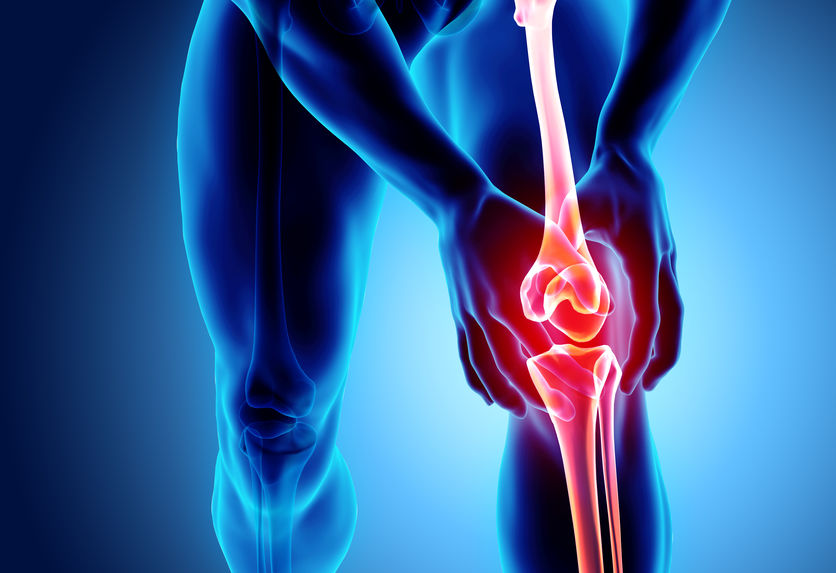- Arthritis
Arthritis comes in many forms but the most common ones are osteoarthritis, gout, and rheumatoid arthritis. Osteoarthritis is a result of wear and tear when one ages and the cartilage in the kneecap becomes weaker.

- Injuries
Injuries, especially those that affect the legs, are the main cause of knee pain. For example, after being involved in a car accident, you may sustain fractures in leg bones. This will change your posture and the way you walk, hence putting a strain on the knees. Athletes, for example, long-distance runners, footballers, and cyclists are also more likely to experience knee pain due to injuries sustained when in action.
Anterior cruciate ligament, ACL is the tear of the ligaments that connect the knee to the thigh. Bursae of the fluid sacs that protects the knee joint may also become inflamed due to overuse of the joint or injury, a condition known as knee bursitis. The knee bone is attached to the muscle by a bundle of fiber-like tissues known as tendons. Due to the overuse of the knee joint, the tendons may become irritated and inflamed and cause knee pain, a condition known as patella tendonitis. This is the reason athletes and accident victims experience knee pain at one point in time.
- Mechanical Problems
Mechanical problems are issues associated with the way we use our different body parts that have a connection with the knee. For instance, if you have an injured hip or foot, you may alter your walking style or even your posture in a bid to avoid the pain. What you may not know is that this change will end up putting more strain on the knee joint, hence more knee pain. At times, the patella may slip out of space and this will cause lots of knee pain. Due to overuse, the iliotibial band of tissues may become so rigid and this will cause debilitating pain. Cyclists and athletes are more likely to experience this pain, a condition known as iliotibial band syndrome.
- Risk Factors
Several physical conditions and makeup can also exert excess pressure on the kneecap thus resulting in immense knee pains. For example, if you have dealt with knee injuries before, you are more likely to experience knee pain if the injury was not effectively dealt with. Overweight people are more susceptible to knee pain because the excess weight exerts lots of pressure on the kneecap when walking downslope. In addition, lack of muscle strength can leave your bones so weak for them to carry your weight. This stress will be exerted in the knees and will cause some knee pain. At the same time, too much physical exercise can also lead to knee pain when too much stress is exerted in the knee joints due to lots of extreme movements.
As you have seen, knee pain has many causes including injury, arthritis, mechanical problems, and risk factors such as being overweight. You can prevent knee pain by living a risk-free life. In this regard, avoid driving while under the influence of alcohol or drugs. This will help prevent accidents that may affect the knees. You can also prevent knee pain by shedding the excess weight and working out regularly to strengthen your muscles. However, the best and most important tips of preventing knee pain is by visiting an orthopedic and getting a checkup on the condition of your bones.
